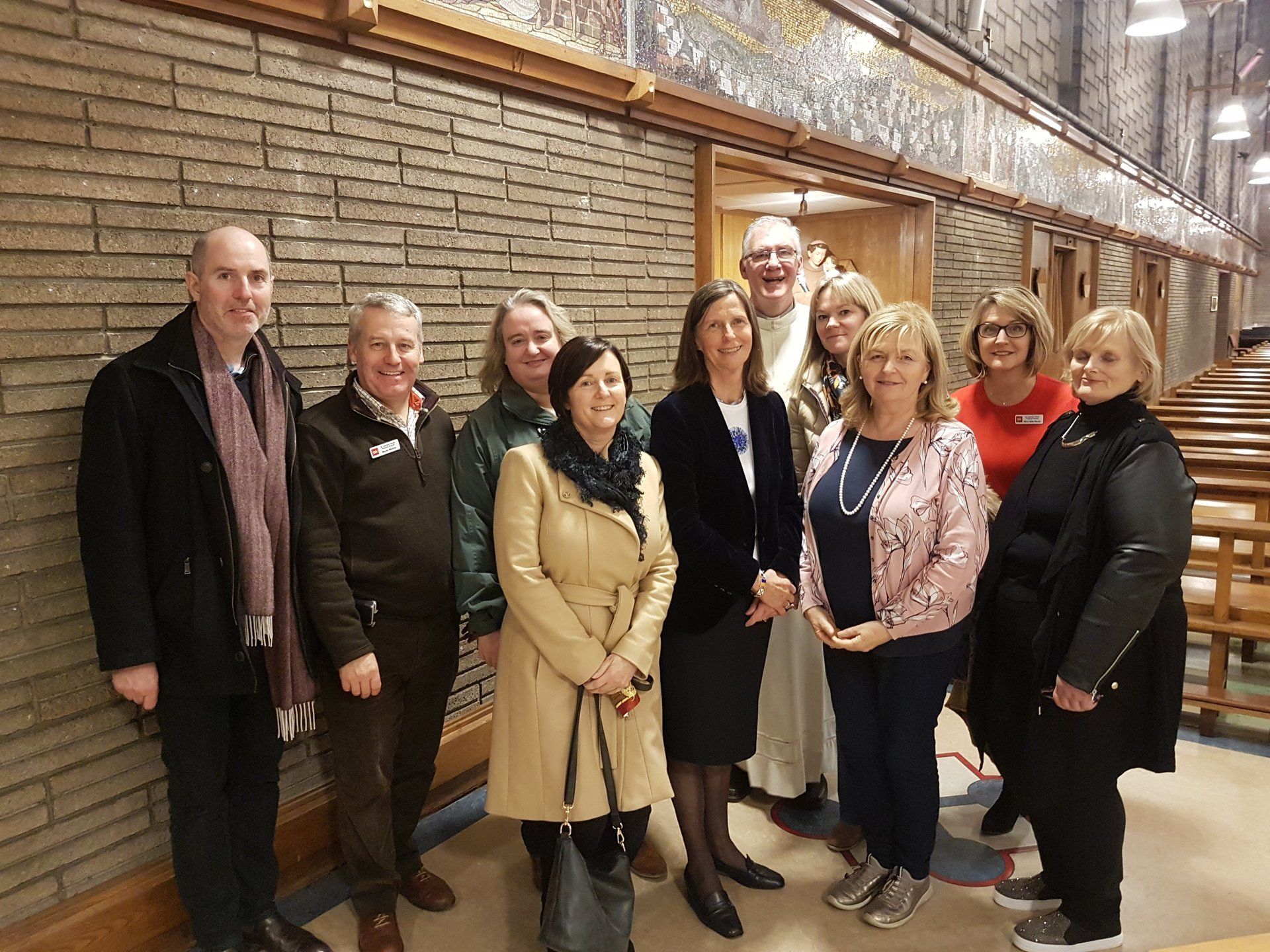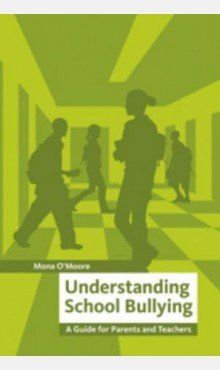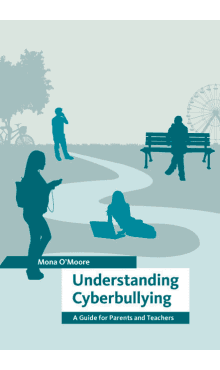Visit of Dr. Mona O’Moore from the the National Anti-Bullying Centre in DCU
Mona remained along with members of her team remained behind to chat with parishioners while all enjoyed some refreshments. The main points of the address are published below. You can also find out more about this very important topic by visiting the centre websites;

Dr. Mona O’Moore (front row centre) along with members of her team from the National Anti-Bullying Centre in DCU and some members of the St. Gabriel's Parish Pastoral Council
Mona has published two books:
Understanding School Bullying: A Guide to Parents and Teachers( Veritas,2010).
Understanding Cyberbullying: A Guide to Parents and Teachers(Veritas, 2014)
Click on book covers for more information. They can also be ordered in shop at back of the Church.
Address Main Points:
Common symptoms are: loss of confidence, loss of self-esteem, anxiety and depression. Thoughts of suicide are also not uncommon and tragically when there are other stressors at play, bullying can cause individuals to take their own lives. It is not that they want to end their lives but they want to put a stop to the relentless pain of victimisation.
The ill-effects of bullying are not surprising because to be bullied means that one is singled out, isolated and repeatedly made to feel different to one’s peers. Words, gestures and images can all be used to humiliate, embarrass, intimidate and threaten one. Owning a mobile/smart phone means there is no escaping, no safe haven. One posting on Snapchat or Instagram, for example, can be seen by multiple viewers for an indefinite period of time, thus causing the intended victim added humiliation and distress.
So what can we do to stop it?
1. We can all shape attitudes and values. I would ask, therefore, that all parents, schools and workplaces, stress that bullying is wrong and that it will not be tolerated.
2. I would ask you all here this evening to reach out to family and friends and have a conversation around respect. Respect is fundamental to all relationships including online relationships. Behaviour based on respect for diversity and individual differences prevents bullying. Before saying or posting something cruel and hurtful we should ask ourselves how would we feel if that was said about us.
3. Silence is the bully’s best friend. We all need, therefore, to become more active and outspoken when we are witness to bullying. We must never join in or forward a hurtful posting. Instead we should show our disapproval and if at all possible support and include the person who is targeted. We should also report the behaviour to a person in authority. To turn a blind eye is to send a message that it is O.K. to bully or harass someone.
4. Young people worldwide are very reluctant to share with their parents or teachers or indeed friends that they are bullied. Most often they feel ashamed or they may fear reprisals. I would ask, therefore, that every parent or teacher here this evening to let their children or teenagers know, that should they ever experience bullying and no matter how embarrassed or upset they may feel that you will not judge them or criticise them even if they did not take the necessary online safety precautions or that they got caught up in some tit for tat conflict. Let them know that you will be there for them and talk about possible ways of dealing with the bullying.
5. Let them also know that no matter what is said or done to hurt them, they must not blame themselves. It is not a statement about them but about their aggressor. Those who bully have the problem. Most often they are compensating for their own personal problems and feelings of inadequacy. People who are happy and content do not bully. It is critical, therefore, that children who bully are identified as early as is possible so that they can be given the necessary professional help to overcome their need to bully. Bullying which is not corrected during childhood and teenage years can so easily lead to anti-social behavior, domestic violence and crime in later years.
To sum up, bullying should not be tolerated as it is the cause of untold physical and mental health problems including serious depression and suicide. I believe that if we all lead by example and we promote at every turn respect for diversity and individual differences we can all make a significant difference to preventing and reducing the level of bullying and thus contribute to creating a healthier and fulfilled society.


